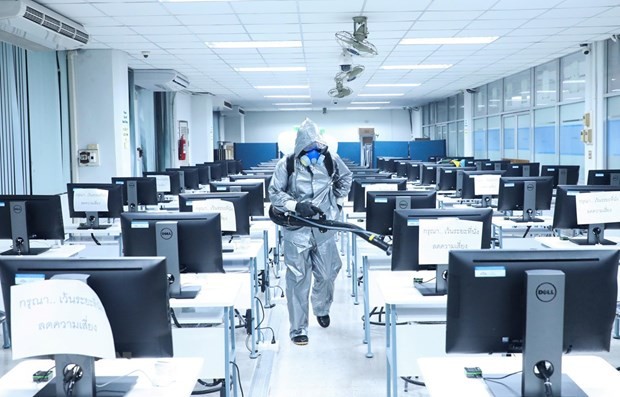
In the policy paper on the Asia Pacific region issued on March 26, ESCAP noted that while exact data on the impact of the pandemic on employment remained unavailable, the impact is likely to be substantial as services and labour-intensive manufacturing comprise over 80 percent of the region's informal sector and small and medium enterprises (SMEs) and contribute to most of the jobs in the region.
The report stressed the need for countries with weak social protection systems to have ample policy space to save jobs and support minimum living standards for households.
Meanwhile, in its report issued on April 3, the Asia Development Bank projected that growth in Southeast Asia will decelerate from 4.4 percent in 2019 to 1 percent this year before rebounding to 4.7 percent in 2021, partly because of the region's strong trade and investment ties with China.
Based on the ADB's projections, Indonesia's growth is expected to shrink from 5 percent last year to 2.5 percent this year. Thailand is expected to slow to minus 4.8 percent. Vietnam's annual average growth of 7 percent will slow to 4.8 percent in 2020, while Singapore is expected to eke out just 0.2 percent growth.
Already, several governments have rushed out programmes to support the masses of newly unemployed from sectors like tourism, hospitality and garment production.
Thailand is giving a 5,000 baht (US$150) monthly support for three months to some nine million informal or self-employed workers. Singapore's supplementary budget worth some SGD48 billion ($33.36 billion) pays unemployed workers SGD800 a month, for three months, to help them look for a new job or undergo training.
























